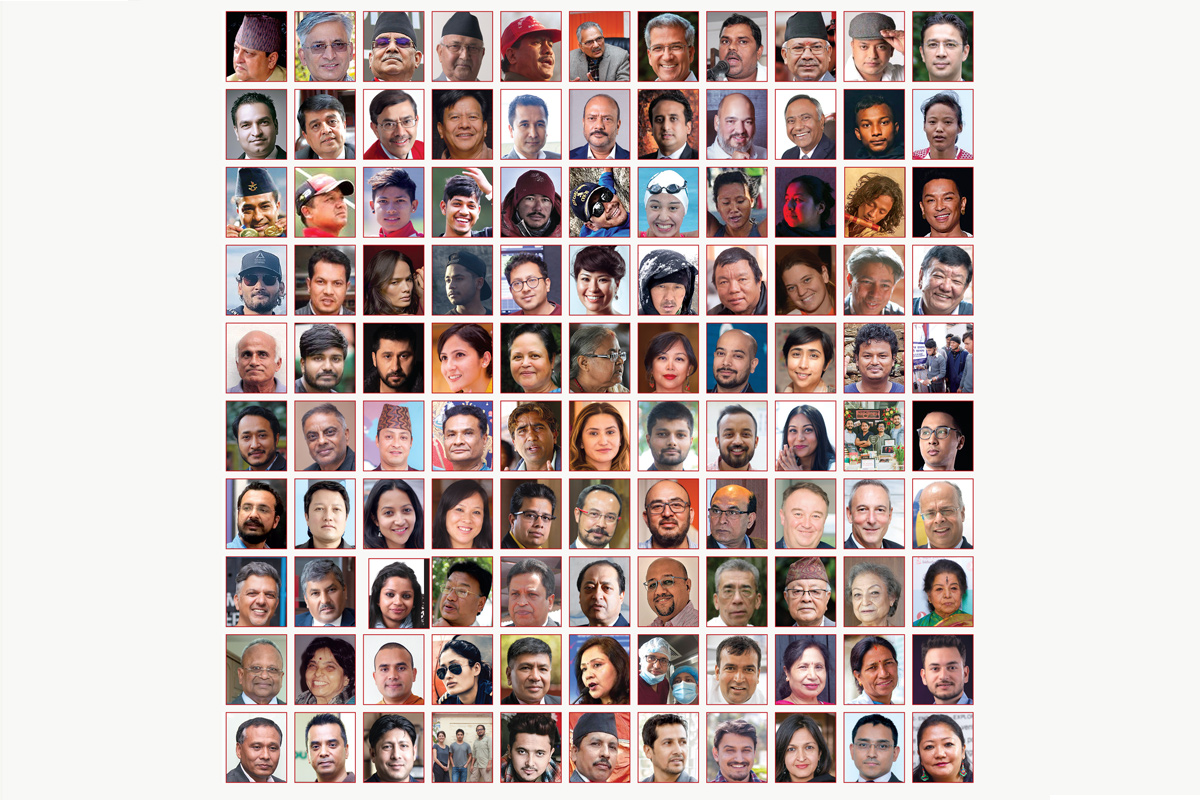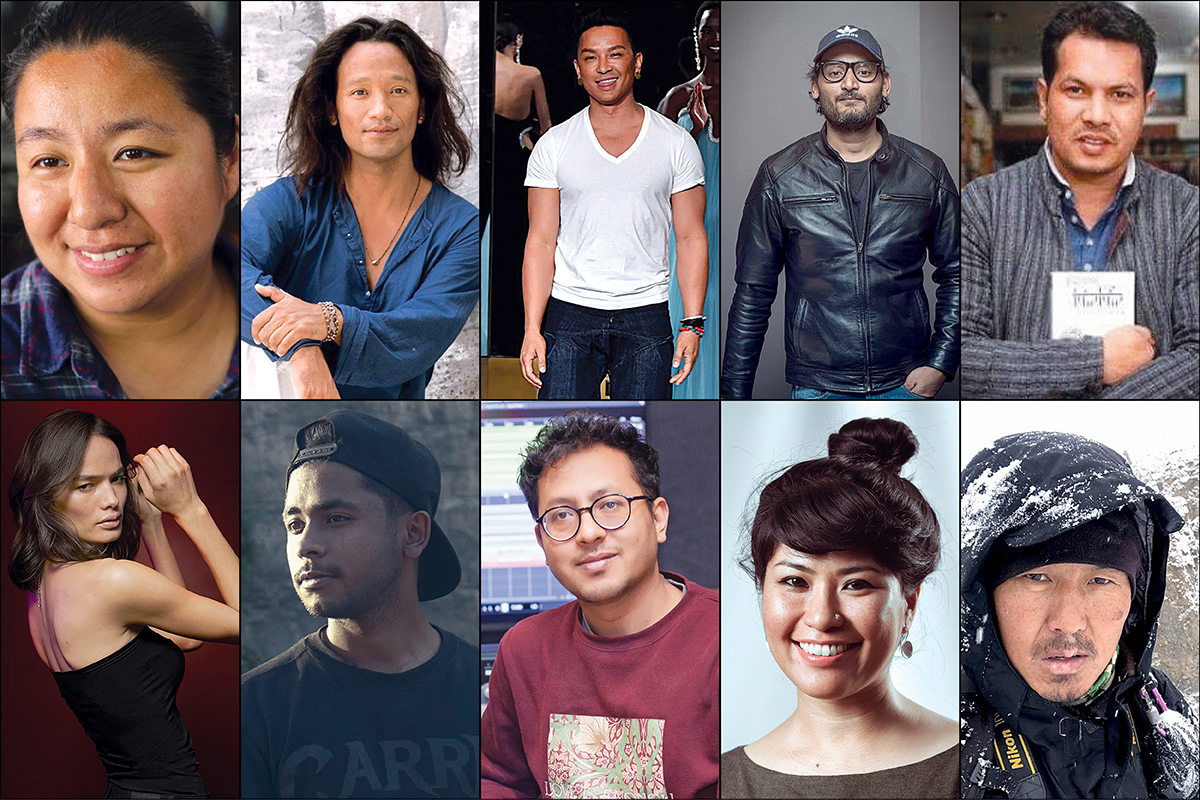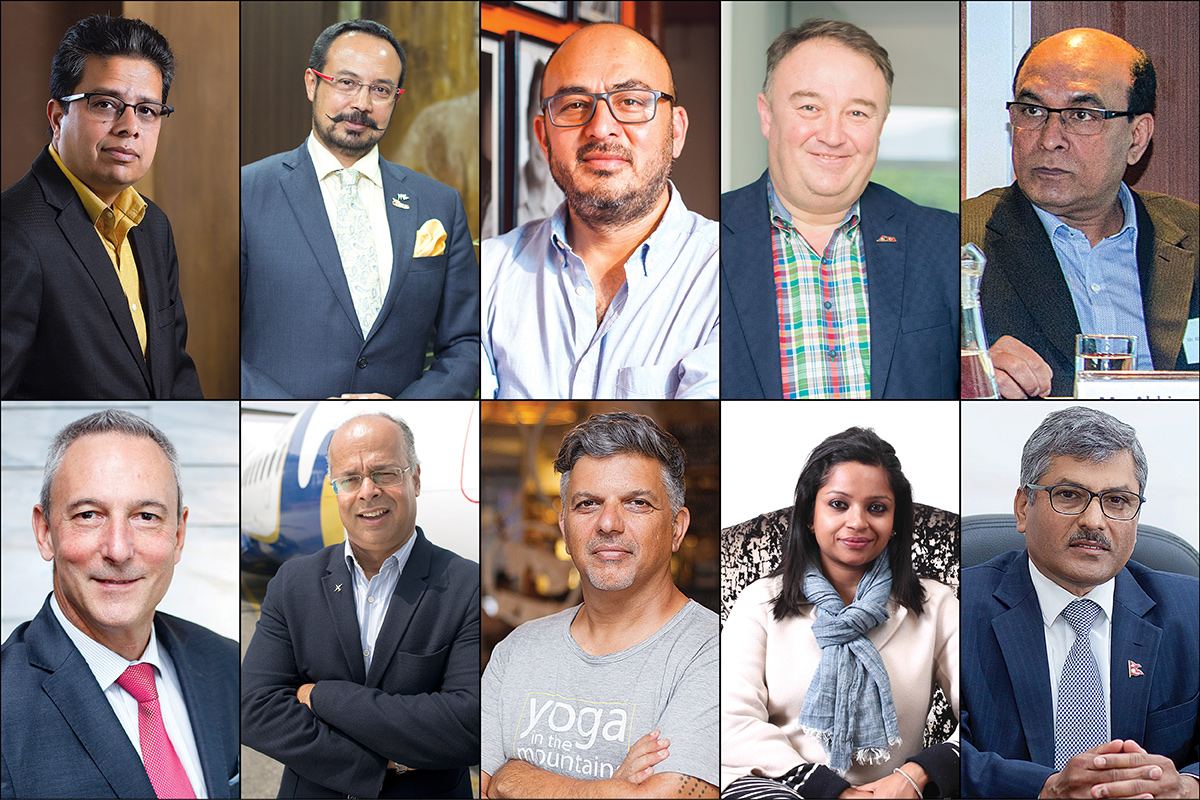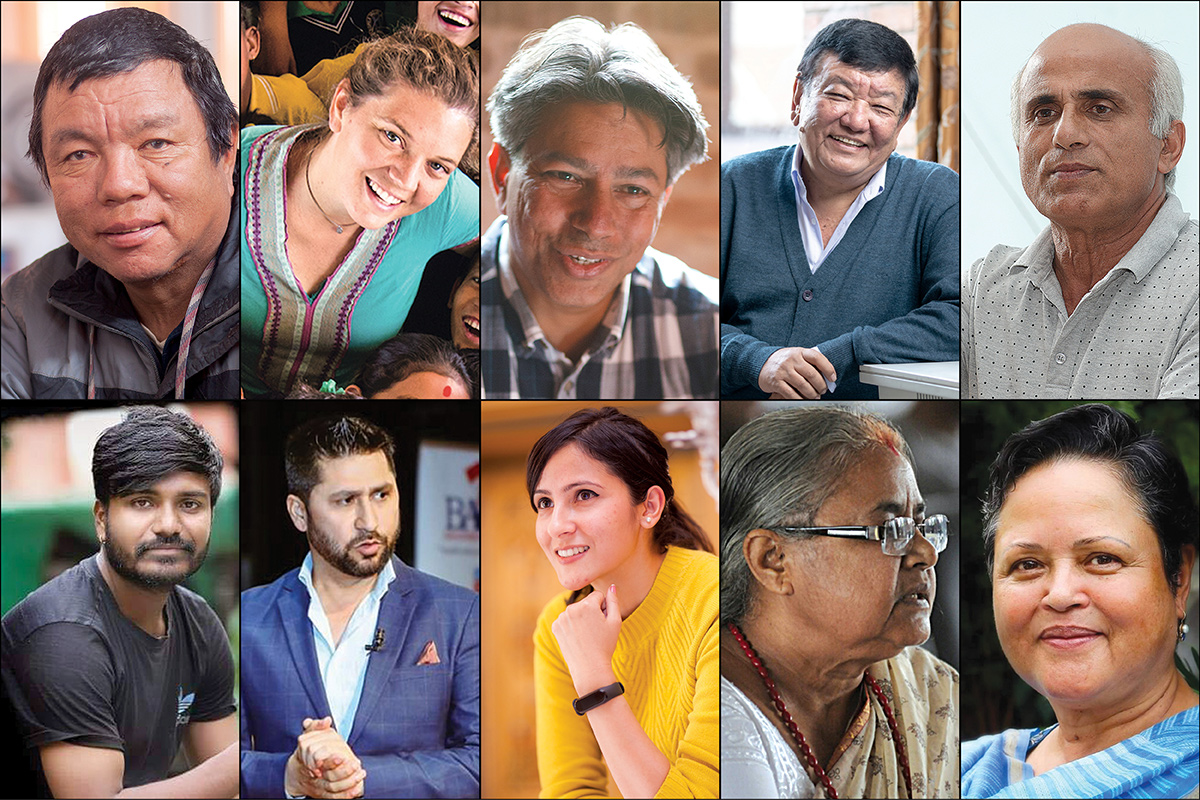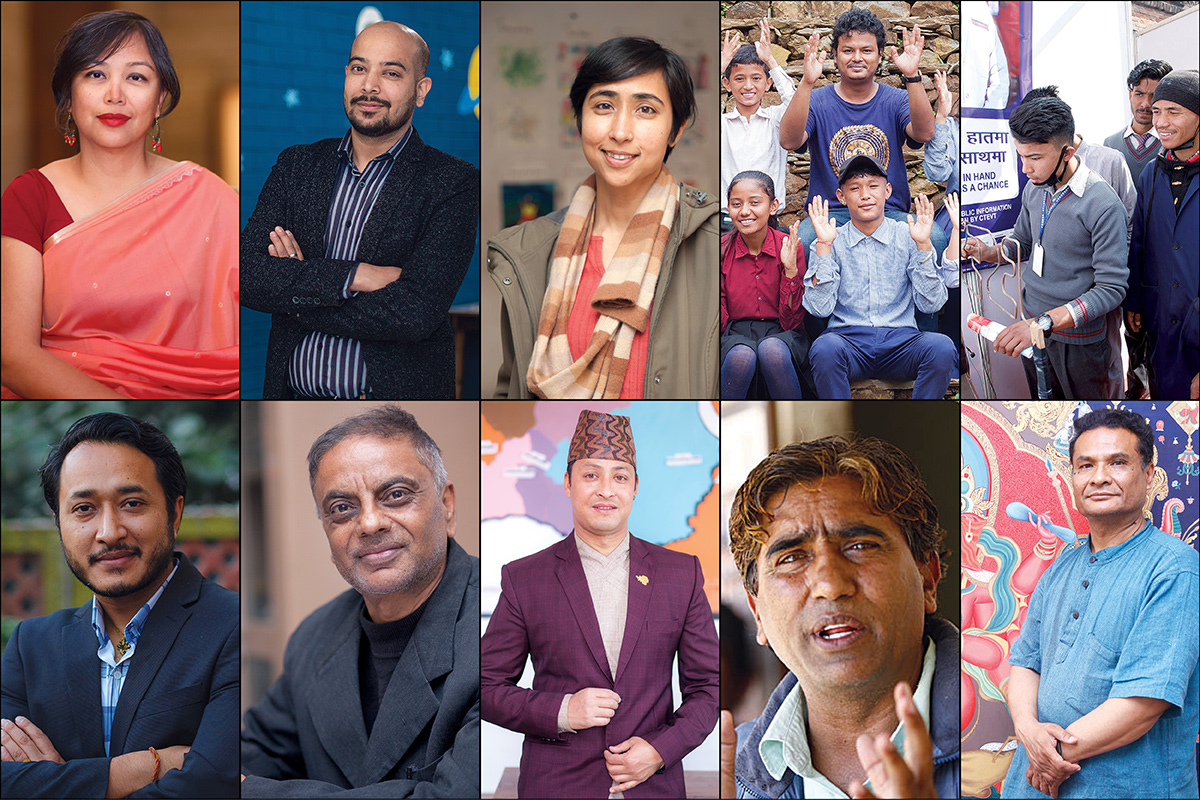
TEACH FOR NEPAL Swastika Shrestha Co-founder and CEO
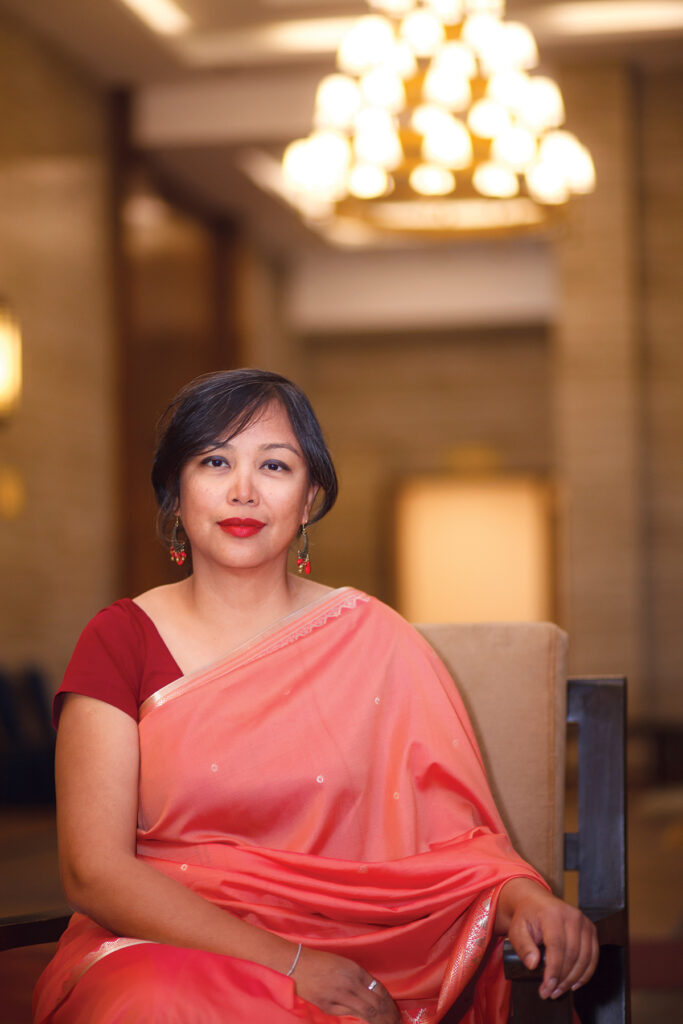 Teach for Nepal defines itself as a movement that has dedicated itself towards bridging the inequality that exists in the Nepali education sector. With a simple vision to ensure that one day all children in Nepal will attain excellent education, Teach for Nepal works with underprivileged communities and children who don’t have access to quality education. One of the primary ways Teach for Nepal ensures that the education Nepali children get isn’t constrained by societal, economic or cultural circumstances is through fellowship programs. In these fellowship programs, Teach for Nepal seeks out and recruits young academics and professionals to teach in public schools throughout the nation for a period of two years. During this period, Teach for Nepal trains their fellows to practice a principle of transformative learning in the local communities that they have been assigned, and to function beyond the classroom. Teach for Nepal is also constantly working with its impressive and ever-increasing alumni network to create discourses and bring long term change to the education system in Nepal. As a Teach for Nepal fellow, individuals will be asked to work in one of the seven districts that the institution is currently functioning. Fellows are required to be a Nepali citizen or an NRN and need to hold a Bachelor’s degree.
Teach for Nepal defines itself as a movement that has dedicated itself towards bridging the inequality that exists in the Nepali education sector. With a simple vision to ensure that one day all children in Nepal will attain excellent education, Teach for Nepal works with underprivileged communities and children who don’t have access to quality education. One of the primary ways Teach for Nepal ensures that the education Nepali children get isn’t constrained by societal, economic or cultural circumstances is through fellowship programs. In these fellowship programs, Teach for Nepal seeks out and recruits young academics and professionals to teach in public schools throughout the nation for a period of two years. During this period, Teach for Nepal trains their fellows to practice a principle of transformative learning in the local communities that they have been assigned, and to function beyond the classroom. Teach for Nepal is also constantly working with its impressive and ever-increasing alumni network to create discourses and bring long term change to the education system in Nepal. As a Teach for Nepal fellow, individuals will be asked to work in one of the seven districts that the institution is currently functioning. Fellows are required to be a Nepali citizen or an NRN and need to hold a Bachelor’s degree.
KARKHANA Pavitra Gautam Co-founder and CEO
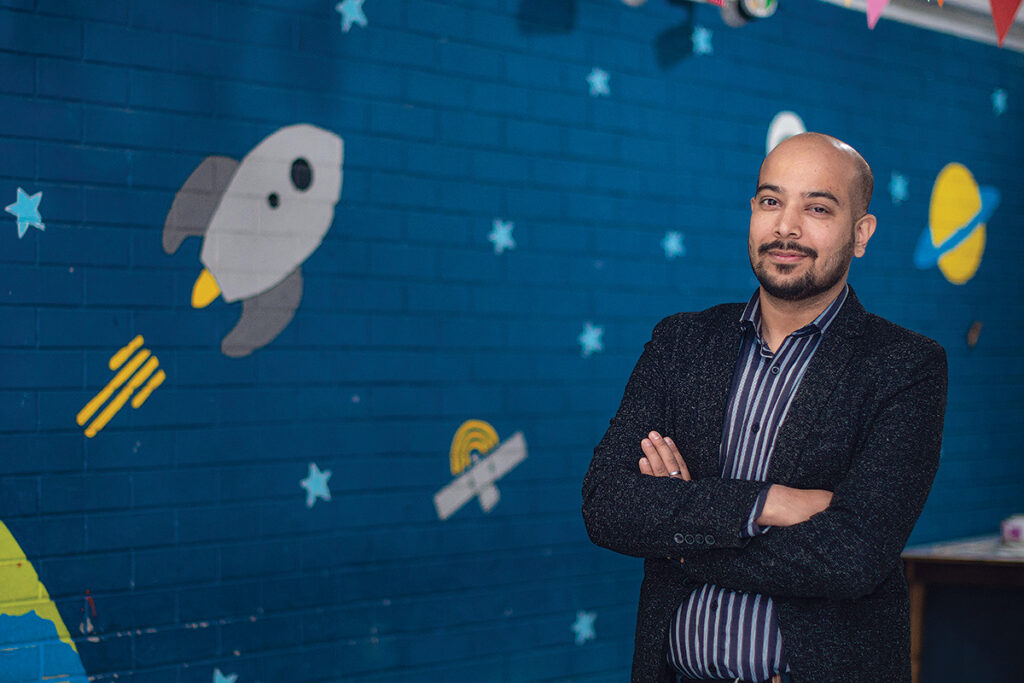 Opting for a process that is outside the box of conventional learning, Karkhana is an institute that believes in applying the skills that pupils learn in the classroom to the real world. Karkhana strives to bring the world of science and technology into the lives of children. A hub for innovation, Karkhana throws out the typical Nepali norm of students mugging up what they learn in the classroom in exchange for having these very kids learn hands on how science and technology can be applied into their lives and community. As of now, the Karkhana team offers three unique curricular as well as co-curricular courses that dive into teaching science, computing and manufacturing/ making.Targeting children from grades as low as three to ninth graders, Karkhana has been delivering something that conventional education has failed to achieve.
Ever since their inception in 2012, the institute have remained firmbelievers in tactile learning, and the minds behind Karkhana work to inculcate in the next generation of Nepalis what they refer to as the four C’s of learning: Critical thinking, Collaboration, Communication and Creativity. Not only does Karkhana through its courses provide a more methodical approach to STEAM subjects (Science, Technology, Engineering, Arts and Math), it also builds youths to become leaders, team players, and innovators who are capable of turning a project into a product.
Beleiving in sharing beyond to catalyse change and innovation, Karkhana recently went region and launched Karkhana.Asia taking their products and services beyond Nepal.
Opting for a process that is outside the box of conventional learning, Karkhana is an institute that believes in applying the skills that pupils learn in the classroom to the real world. Karkhana strives to bring the world of science and technology into the lives of children. A hub for innovation, Karkhana throws out the typical Nepali norm of students mugging up what they learn in the classroom in exchange for having these very kids learn hands on how science and technology can be applied into their lives and community. As of now, the Karkhana team offers three unique curricular as well as co-curricular courses that dive into teaching science, computing and manufacturing/ making.Targeting children from grades as low as three to ninth graders, Karkhana has been delivering something that conventional education has failed to achieve.
Ever since their inception in 2012, the institute have remained firmbelievers in tactile learning, and the minds behind Karkhana work to inculcate in the next generation of Nepalis what they refer to as the four C’s of learning: Critical thinking, Collaboration, Communication and Creativity. Not only does Karkhana through its courses provide a more methodical approach to STEAM subjects (Science, Technology, Engineering, Arts and Math), it also builds youths to become leaders, team players, and innovators who are capable of turning a project into a product.
Beleiving in sharing beyond to catalyse change and innovation, Karkhana recently went region and launched Karkhana.Asia taking their products and services beyond Nepal.
SRIJANALAYA Sharareh Bajracharya Chairperson
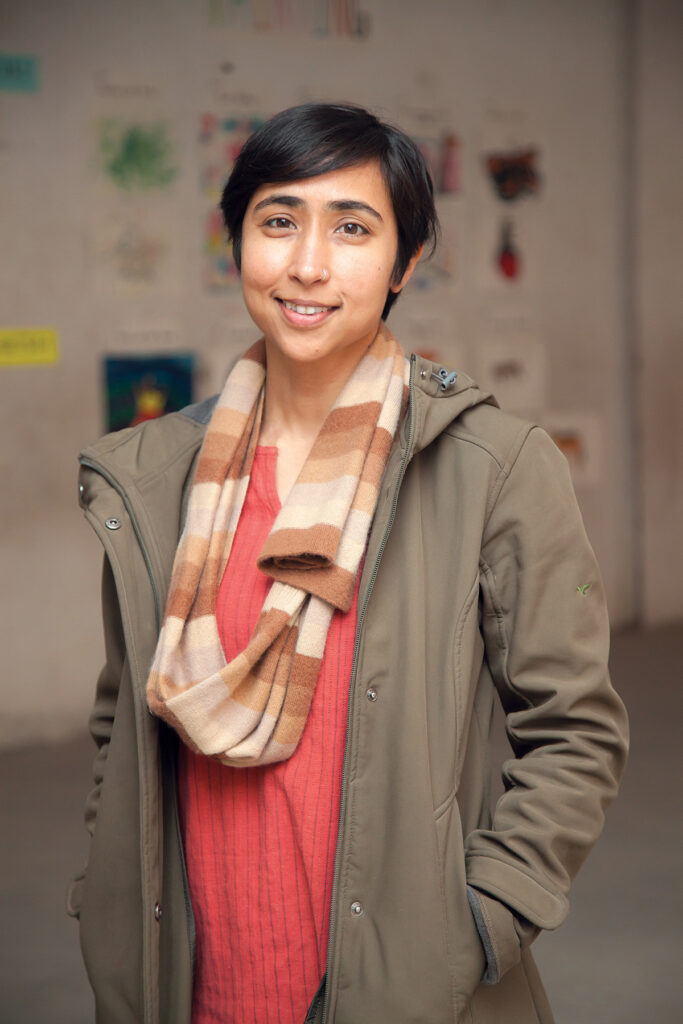 A non-profit, non-government organisation, Srijanalaya calls itself a safe haven for art and expression. Their very name is a summation of two words; “Srijana” which means creation or imagination and “Alaya” which translates into a home or a space. Understanding that education system that has been followed for ages in Nepal needs to be changed, Srijanalaya has been putting in work to incorporate art and creativity into a system that has always been built to revolve around rote-learning and undeviating syllabuses. Srijanalaya wants to disrupt the trend that is to think that the arts are nothing more than just a hobby or a side gig, they want to erase this mindset and combine arts within the curriculum itself. Srijanalaya focuses on having children and the communities they come from to express themselves better through art forms by engaging them with workshops, exhibitions, performances, and curriculums that not only push their creative boundaries but also form a hybridity with the various indigenous and local art culture and trends as much as possible. Srijanalaya functions through a community of artists and educators who have come together to teach, inspire and provide a creative alternative to the monotony of the existing education system.
A non-profit, non-government organisation, Srijanalaya calls itself a safe haven for art and expression. Their very name is a summation of two words; “Srijana” which means creation or imagination and “Alaya” which translates into a home or a space. Understanding that education system that has been followed for ages in Nepal needs to be changed, Srijanalaya has been putting in work to incorporate art and creativity into a system that has always been built to revolve around rote-learning and undeviating syllabuses. Srijanalaya wants to disrupt the trend that is to think that the arts are nothing more than just a hobby or a side gig, they want to erase this mindset and combine arts within the curriculum itself. Srijanalaya focuses on having children and the communities they come from to express themselves better through art forms by engaging them with workshops, exhibitions, performances, and curriculums that not only push their creative boundaries but also form a hybridity with the various indigenous and local art culture and trends as much as possible. Srijanalaya functions through a community of artists and educators who have come together to teach, inspire and provide a creative alternative to the monotony of the existing education system.
MAYA UNIVERSE ACADEMY Manjil Rana Founding Principal
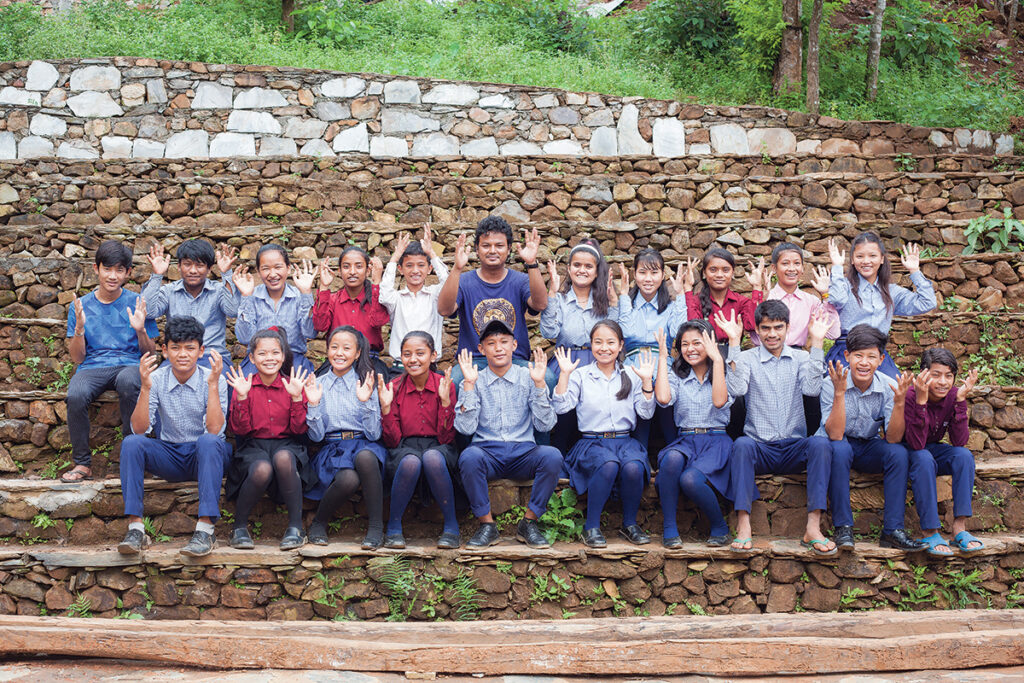 The driving factor behind Maya Universe Academy’s inception was the dire state that the public-school system in rural regions of Nepal was in. With a strong desire and urgency to change this reality, Maya Universe Academy was founded in 2011 by a group of youths seeking to change what education meant for children in the underdeveloped and rural settlements of Nepal. The end goal is simple: to create an alternative to Nepal’s failed public school system and unaffordable private schools. As of the time of writing, Maya Universe Academy runs three schools, two of which are in Tanahun and one in Udaypur. With over 400 students, Maya Universe Academy has been ensuring that the achievements and opportunities that children get shouldn’t be determined by their economic condition, ethnicity and geographic regions. Starting out as just a tent with 15 students, this community-supported primary school chain is the only line of private schools in Nepal where parents and guardians are able to support the institute not through money, but rather by volunteering for a day or two at the school each month. With a long running goal of becoming a self-sustaining institute, Maya Universe Academy has invested and taken steps in a handful of social enterprises that not only support the schools financially, but also function towards promoting a sustainable community development, where the businesses will assist the families of their students financially as well. Currently Maya Universe Academy works in the poultry (Maya’s country chicken), handicrafts (CraftsbyMayaUniverse), travel (Maya EdEx) sectors while also being involved with volunteering programs.
The driving factor behind Maya Universe Academy’s inception was the dire state that the public-school system in rural regions of Nepal was in. With a strong desire and urgency to change this reality, Maya Universe Academy was founded in 2011 by a group of youths seeking to change what education meant for children in the underdeveloped and rural settlements of Nepal. The end goal is simple: to create an alternative to Nepal’s failed public school system and unaffordable private schools. As of the time of writing, Maya Universe Academy runs three schools, two of which are in Tanahun and one in Udaypur. With over 400 students, Maya Universe Academy has been ensuring that the achievements and opportunities that children get shouldn’t be determined by their economic condition, ethnicity and geographic regions. Starting out as just a tent with 15 students, this community-supported primary school chain is the only line of private schools in Nepal where parents and guardians are able to support the institute not through money, but rather by volunteering for a day or two at the school each month. With a long running goal of becoming a self-sustaining institute, Maya Universe Academy has invested and taken steps in a handful of social enterprises that not only support the schools financially, but also function towards promoting a sustainable community development, where the businesses will assist the families of their students financially as well. Currently Maya Universe Academy works in the poultry (Maya’s country chicken), handicrafts (CraftsbyMayaUniverse), travel (Maya EdEx) sectors while also being involved with volunteering programs.
CTEVT
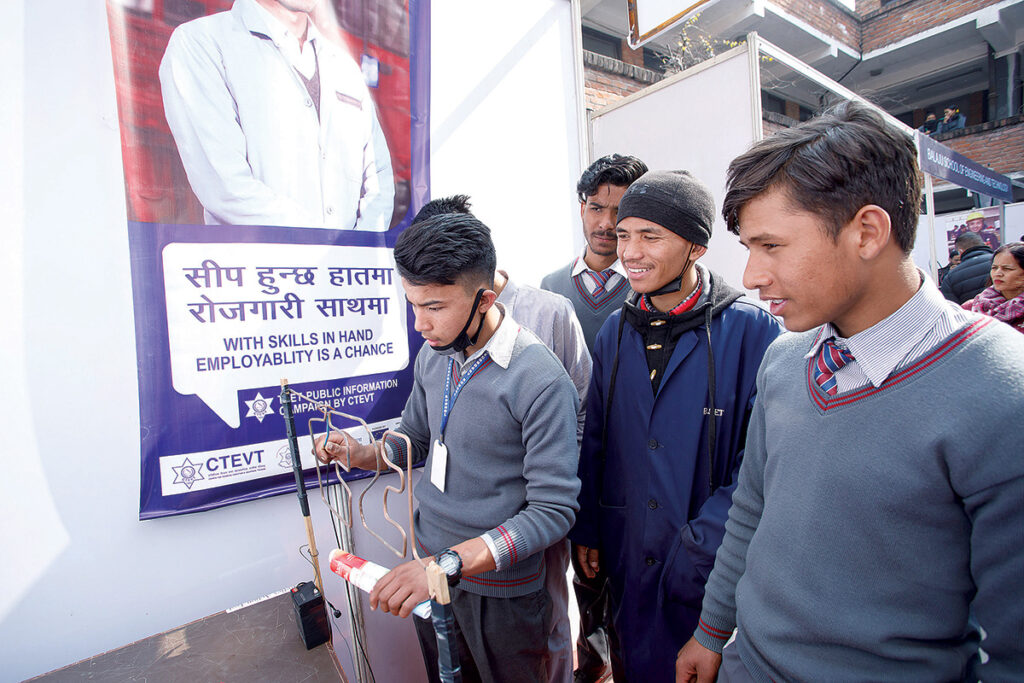 CTEVT - otherwise known as The Council for Technical Education and Vocational Training - was founded in 1989. This institute handles the organisation and policy formation of technical education and vocational training in Nepal. Seeing and understanding the potential that vocational and technical fields of work carry, CTEVT’s primary mission is to generate capable and competent workforces fit for these occupations that often tend to be overlooked by many. CTEVT provides over 93 unique courses that range anywhere from culinary training to a diploma in automobile engineering. These courses include polytechnic, short-term vocational training, apprenticeship trainings and even mobile training programs. Further, with affiliations in over 795 colleges across the country, CTEVT has been touching the lives of countless Nepalis be it in villages, towns or metropolitan cities. CTEVT program is operated and overlooked by a 24 member assembly and also has a governing council consisting of nine members. Both the assembly and the council are led by the Minister of Education. The CTEVT program believes that through its efforts, it not only generates essential skilled workforce that will benefit the nation, but it also provides citizens with an opportunity to improve their quality of life.
CTEVT - otherwise known as The Council for Technical Education and Vocational Training - was founded in 1989. This institute handles the organisation and policy formation of technical education and vocational training in Nepal. Seeing and understanding the potential that vocational and technical fields of work carry, CTEVT’s primary mission is to generate capable and competent workforces fit for these occupations that often tend to be overlooked by many. CTEVT provides over 93 unique courses that range anywhere from culinary training to a diploma in automobile engineering. These courses include polytechnic, short-term vocational training, apprenticeship trainings and even mobile training programs. Further, with affiliations in over 795 colleges across the country, CTEVT has been touching the lives of countless Nepalis be it in villages, towns or metropolitan cities. CTEVT program is operated and overlooked by a 24 member assembly and also has a governing council consisting of nine members. Both the assembly and the council are led by the Minister of Education. The CTEVT program believes that through its efforts, it not only generates essential skilled workforce that will benefit the nation, but it also provides citizens with an opportunity to improve their quality of life.
DAAYITWA Pukar Malla Founder and Chairperson
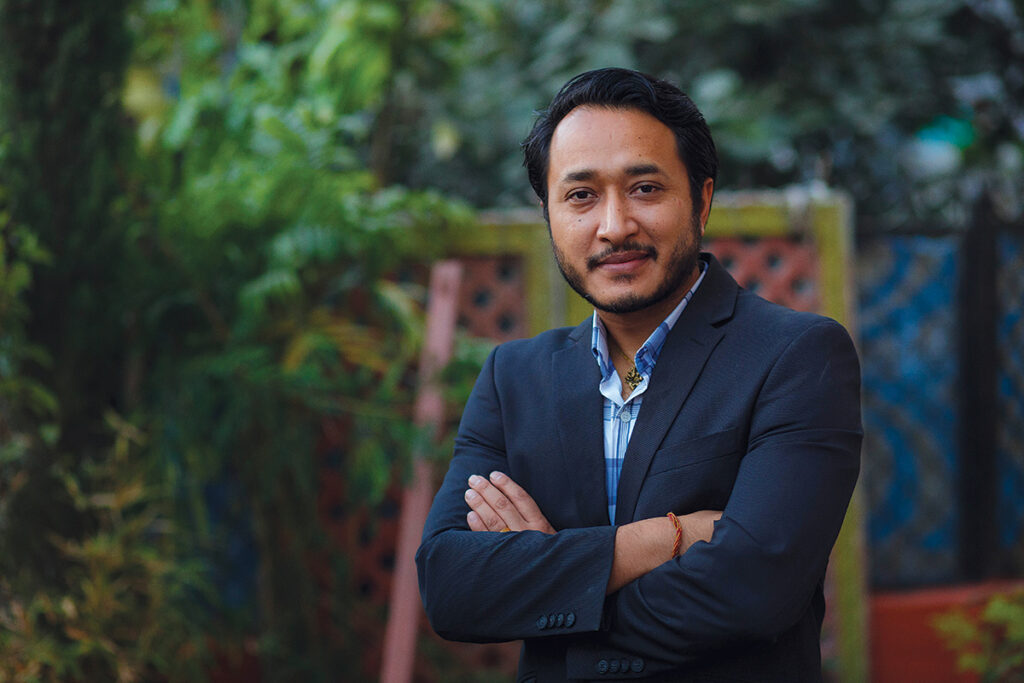 With a history of empowering the youths of Nepal, the Daayitwa organisation has been functioning since 2008. The starting of this organisation was possible due to 55 young leaders who wanted to collaborate on national and international levels. In the first three years, the Daayitwa helped young entrepreneurs in Nepal based community projects. Gradually they launched many campaigns and programs like Walk for Nepal and NayaGhar. Now, it helps young entrepreneurs expand their businesses, promote domestic youth employment, and leverage the grassroot REAP learning.
For the past seven years, the Daayitwa Nepal Public Service Fellowship Program (DNPSF) has been creating a fellowship every year with new motives. The institute describes the fellowship as one that will set up youths to collaborate with the government to conduct different activities like economic based research and evidence-based research decisions. The duration of the fellowship is somewhere between 3-6 months and the data from past fellowships show that it has helped 99 policy entrepreneurs to conduct research projects.
With a history of empowering the youths of Nepal, the Daayitwa organisation has been functioning since 2008. The starting of this organisation was possible due to 55 young leaders who wanted to collaborate on national and international levels. In the first three years, the Daayitwa helped young entrepreneurs in Nepal based community projects. Gradually they launched many campaigns and programs like Walk for Nepal and NayaGhar. Now, it helps young entrepreneurs expand their businesses, promote domestic youth employment, and leverage the grassroot REAP learning.
For the past seven years, the Daayitwa Nepal Public Service Fellowship Program (DNPSF) has been creating a fellowship every year with new motives. The institute describes the fellowship as one that will set up youths to collaborate with the government to conduct different activities like economic based research and evidence-based research decisions. The duration of the fellowship is somewhere between 3-6 months and the data from past fellowships show that it has helped 99 policy entrepreneurs to conduct research projects.
SHREE NANDI RATRI SECONDARY SCHOOL Mohan Raj Sharma Principal
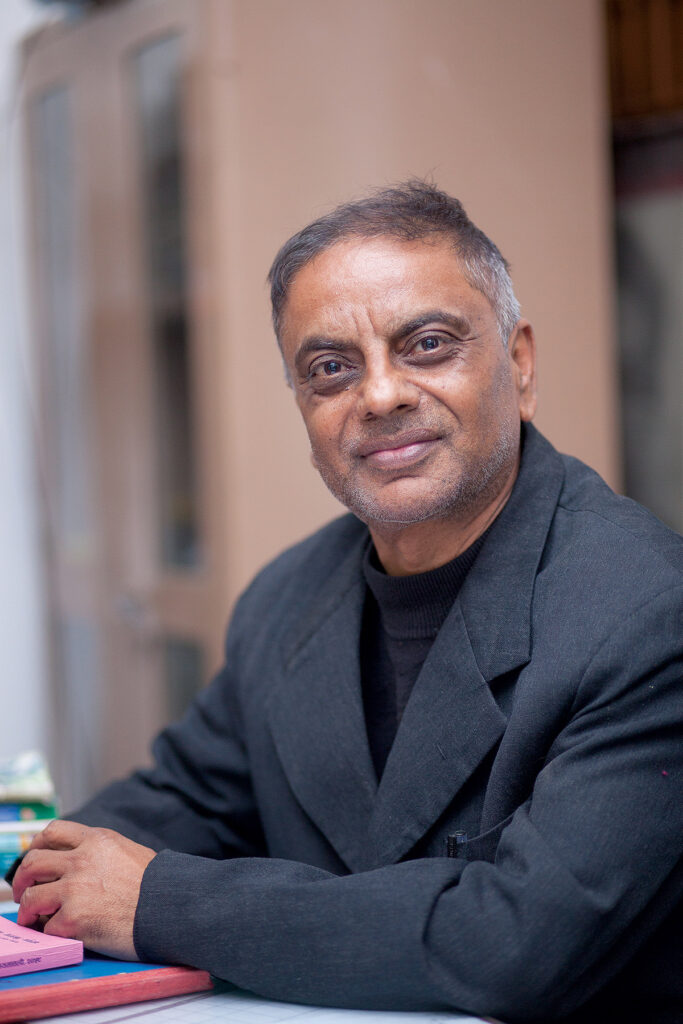 In 1951, a group of youths from Handigaun led by a teacher Ramji Prasad Aryal opened a night school and named it Ratri Paathshala. Soon after its establishment, the night school became the learning hub for the economically disadvantaged students who otherwise could not afford to attend formal education for various reasons. Since 1991 Ratri Paathshala, which was earlier merged with Praud Mahila Mandir and Nandi School, and later split into two, is known as Shree Nandi Ratri Secondary School. By day its students are labourers, drivers, house helps, shop assistants and by night they wear the students’ garb. There is no age bar for the students to enroll in this government run night school which is the only night school in the Kathmandu Valley. The average age of the students is 20 plus with the oldest currently enrolled being 61. The school follows the government curriculum and all the other guidelines as any other government school would apart from the fact that it runs at night.
At present, they have over 150 students studying from grades 6 to 12. The school has over 70 female students. In the day, Nandi Secondary School is run in the same building and at night (6-9pm), Shree Nandi Ratri Secondary School comes to life.
In 1951, a group of youths from Handigaun led by a teacher Ramji Prasad Aryal opened a night school and named it Ratri Paathshala. Soon after its establishment, the night school became the learning hub for the economically disadvantaged students who otherwise could not afford to attend formal education for various reasons. Since 1991 Ratri Paathshala, which was earlier merged with Praud Mahila Mandir and Nandi School, and later split into two, is known as Shree Nandi Ratri Secondary School. By day its students are labourers, drivers, house helps, shop assistants and by night they wear the students’ garb. There is no age bar for the students to enroll in this government run night school which is the only night school in the Kathmandu Valley. The average age of the students is 20 plus with the oldest currently enrolled being 61. The school follows the government curriculum and all the other guidelines as any other government school would apart from the fact that it runs at night.
At present, they have over 150 students studying from grades 6 to 12. The school has over 70 female students. In the day, Nandi Secondary School is run in the same building and at night (6-9pm), Shree Nandi Ratri Secondary School comes to life.
SNOW YAK FOUNDATION Binod Shahi Founder
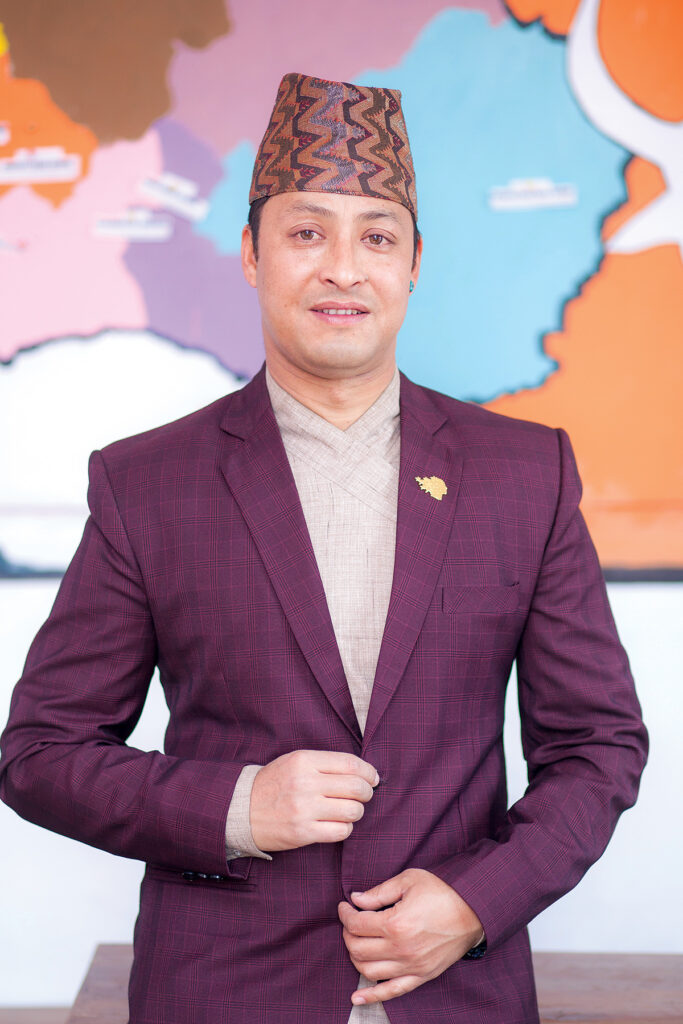 Binod Shahi’s journey in the field of education is one that has awed many and inspired even more. A story of an individual who sought to make a difference, Shahi’s efforts have touched the lives of many. Each year, Shahi travels all the way to rural Dolpa and teaches the children there for six months. In these six months, Shahi forgoes the comforts that he could have otherwise enjoyed in his home in Kathmandu. The other six months of the year, Shahi is busy collecting funds to help and support his students and their communities back in Dolpa. Today, almost a decade and half since his first journey to teach in rural Dolpa, Shahi is working with his own NGO, the Snow Yak Foundation, in order to bring the magic of knowledge and literacy to the nomadic youths of Dolpa. Fondly known by his pupil and their families as “Sir of the Himalayas”, Shahi came within the top 50 out of 37,000 teachers in the Global Teacher’s Prize 2018. Shahi believes that while money can be an important part of someone’s lives, making a difference in someone’s life holds much more value. He also believes that while individuals and organisational efforts can help regions such as Dolpa, the only way to truly uplift these people are through literacy and education.
Binod Shahi’s journey in the field of education is one that has awed many and inspired even more. A story of an individual who sought to make a difference, Shahi’s efforts have touched the lives of many. Each year, Shahi travels all the way to rural Dolpa and teaches the children there for six months. In these six months, Shahi forgoes the comforts that he could have otherwise enjoyed in his home in Kathmandu. The other six months of the year, Shahi is busy collecting funds to help and support his students and their communities back in Dolpa. Today, almost a decade and half since his first journey to teach in rural Dolpa, Shahi is working with his own NGO, the Snow Yak Foundation, in order to bring the magic of knowledge and literacy to the nomadic youths of Dolpa. Fondly known by his pupil and their families as “Sir of the Himalayas”, Shahi came within the top 50 out of 37,000 teachers in the Global Teacher’s Prize 2018. Shahi believes that while money can be an important part of someone’s lives, making a difference in someone’s life holds much more value. He also believes that while individuals and organisational efforts can help regions such as Dolpa, the only way to truly uplift these people are through literacy and education.
SIMRIK ATELIER Lok Chitrakar Founder
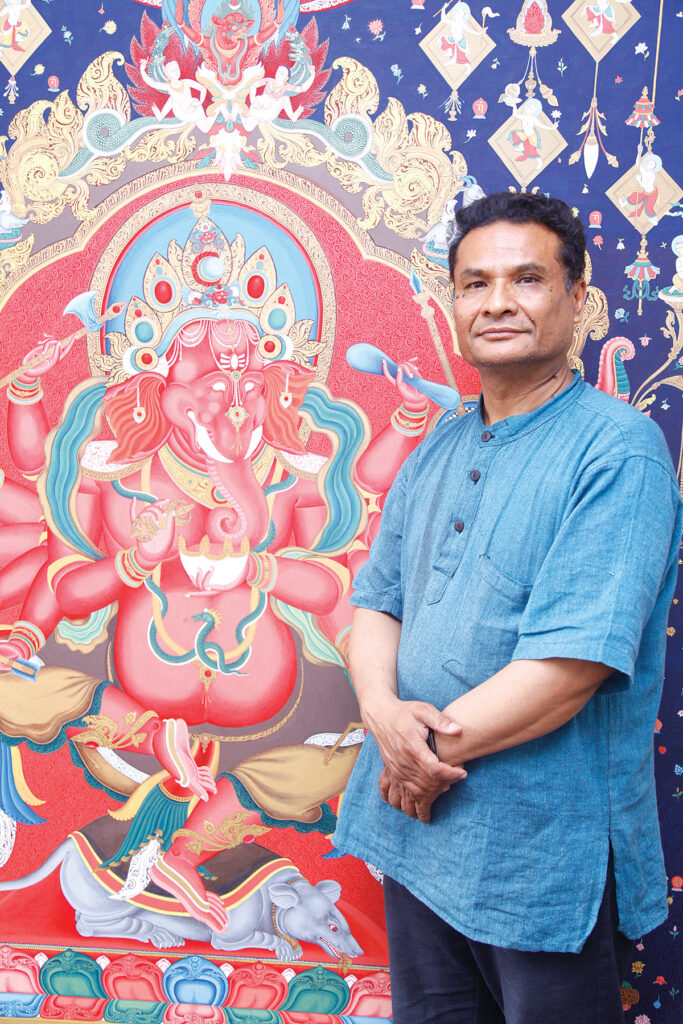 Paubha - a Newari traditional art form is at the core of Simrik Atelier teaching. Simrik Atelier functions as a school, studio and art gallery. Paubha is a world heritage jewel that is over a thousand years old. Simrik Atelier was founded by renowned Paubha artist, Lok Chitrakar, a self-taught Paubha artist. He is recognised as the ‘Maker and Saver of Paubha’. He has been relentlessly working for over the last 40 years to keep Paubha art contemporary. The art school hopes to pass the baton to the next generation of artists to keep the art form alive. During their courses the school uses instructional videos, guest lectures, handouts and one on one teaching instruction. Simrik Atelier offers short-term workshops and long-term courses and employ three languages: Nepali, English and Japanese to offer instruction.
Paubha - a Newari traditional art form is at the core of Simrik Atelier teaching. Simrik Atelier functions as a school, studio and art gallery. Paubha is a world heritage jewel that is over a thousand years old. Simrik Atelier was founded by renowned Paubha artist, Lok Chitrakar, a self-taught Paubha artist. He is recognised as the ‘Maker and Saver of Paubha’. He has been relentlessly working for over the last 40 years to keep Paubha art contemporary. The art school hopes to pass the baton to the next generation of artists to keep the art form alive. During their courses the school uses instructional videos, guest lectures, handouts and one on one teaching instruction. Simrik Atelier offers short-term workshops and long-term courses and employ three languages: Nepali, English and Japanese to offer instruction.
SAMATA SHIKSHA NIKETAN Uttam Sanjel Founder
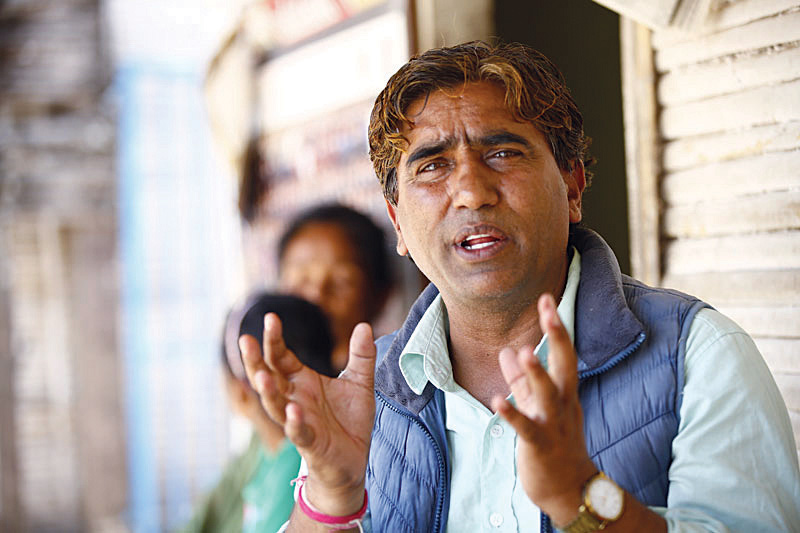 Samata Shiksha Niketan was founded by Uttam Sanjel in 2001. The school was started with the promise to promote equity through education. Owing to the fact that private schools are expensive and therefore not within the reach of the poor and the needy, the students at Samata Shiksha Niketan, irrespective of the grade, pay a mere Rs. 100 as monthly fee. The school runs classes from nursery to Masters level. As a means to reduce the growing schism between the rich and the poor, the school welcomes the economically marginalised and those seeking to transform their lives through quality education. Establishing itself as the fastest growing chain of private schools in the country, currently, they have schools in all the 77 districts. They have recently established their schools in India, Sri Lanka, Myanmar and Bangladesh.
In December 2020, 15-year-old Ashmita Adhikari from Chitwan, a student of Samata, has secured a full scholarship to study in Switzerland’s Aiglon College for four years. Aiglon College, founded by John Corlette in 1949, is considered one of the most exclusive and expensive boarding schools in the world.
Samata Shiksha Niketan was founded by Uttam Sanjel in 2001. The school was started with the promise to promote equity through education. Owing to the fact that private schools are expensive and therefore not within the reach of the poor and the needy, the students at Samata Shiksha Niketan, irrespective of the grade, pay a mere Rs. 100 as monthly fee. The school runs classes from nursery to Masters level. As a means to reduce the growing schism between the rich and the poor, the school welcomes the economically marginalised and those seeking to transform their lives through quality education. Establishing itself as the fastest growing chain of private schools in the country, currently, they have schools in all the 77 districts. They have recently established their schools in India, Sri Lanka, Myanmar and Bangladesh.
In December 2020, 15-year-old Ashmita Adhikari from Chitwan, a student of Samata, has secured a full scholarship to study in Switzerland’s Aiglon College for four years. Aiglon College, founded by John Corlette in 1949, is considered one of the most exclusive and expensive boarding schools in the world.
Published Date: February 24, 2021, 12:00 am
Post Comment
E-Magazine
RELATED People To Watch


